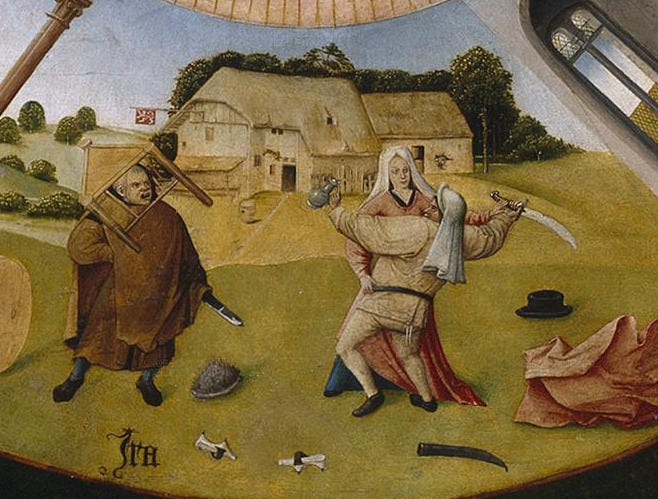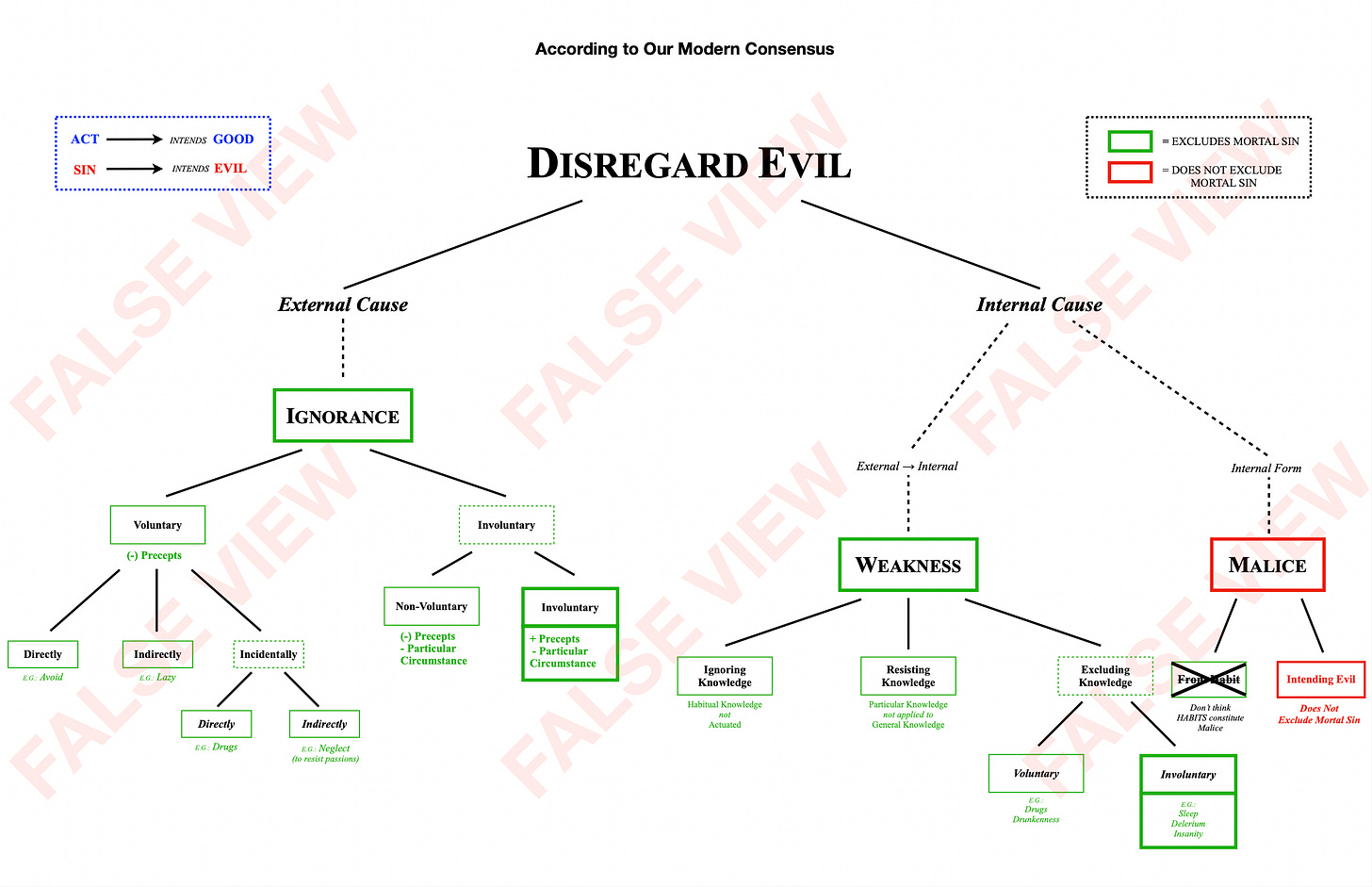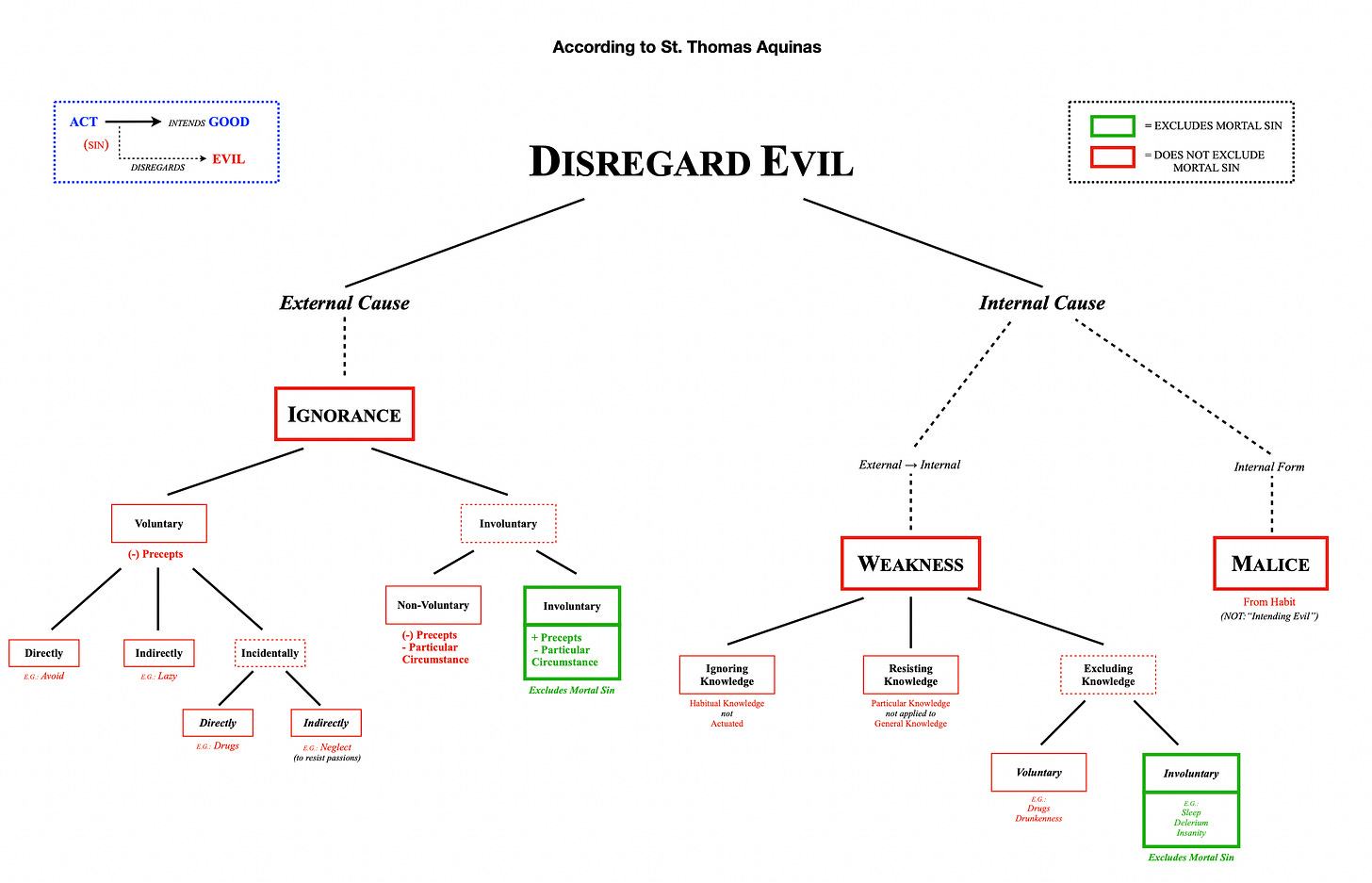Understanding Mortal Sin
UNDERSTANDING MORTAL SIN
Grave Matter
I’m currently finishing up writing my book on Mortal Sin, where I unpack what I believe to be the most vague and obscure topic in all of Catholic teaching today. I say today, because once I started researching the topic some four years ago, I found out that there was more clarity than what we’re presented with today. If you ask someone what makes a mortal sin a mortal sin today, you’ll get the stock answer provided by the Catechism: a mortal sin is a sin that is grave matter, committed with full knowledge and intent. That part is absolutely correct—what follows is where all the confusion sets in.
What’s grave matter?
You’re likely to hear a response something like the following: Grave matter means that the act must be serious.
“Serious” and “grave” are synonyms, though, so that actually doesn’t provide any further clarity.
Next, you’re likely to get an example: If you steal $1,000 that’s grave, but if a child steals a candy bar from the grocery store, that’s not grave.
Make sense?
…Maybe… and only if you don’t look too closely…
The example above is a distinction in quantity, and distinctions in quantity can never constitute a formal distinction. Take the following as a good way to understand this: so $1,000 is grave, but what about $775? Or $990? Or $20?… If they respond that $20 is not grave but $775 is, there has to be a point where a dollar amount goes from grave to non-grave, and does that mean that if you find that quantity, say $51, and you take one dollar less, then you’re in the clear? It’s of course absurd, and that’s precisely because a distinction in quantity can never constitute a formal distinction.
Quantity is a measure of the matter of a thing; quality is the measure of the form of a thing. In order to understand something, we have to understand the formal aspect of that thing. If we’re going to understand “grave matter”, we’re going to have to understand the formal dimension of what constitutes a grave sin.
Full Knowledge
From here, things don’t get any clearer. Ask about the next parameter of mortal sin, What’s full knowledge/intent? And things only get more confusing…
Full knowledge is any act that is committed with knowledge of the moral implications of the act.
That’s what you’ll typically hear.
Here’s what “Magisterium AI” says about “Full knowledge”:
The person committing the sin must be fully aware that the action is sinful and gravely wrong. This implies an understanding of the sinful character of the act and its opposition to God's law.
This creates an even more paradoxical conclusion which everyone in Catholic circles seems to work tirelessly to avoid saying out loud: why would anyone ever want to learn anything about sin if that were the case??? Even worse, Why would anyone try to teach anyone else about mortal sin if that were the case???
You can’t avoid this paradox given that explanation of what constitutes “full knowledge”. It strikes one immediately as absurd. By this logic, only those knowledgeable in the faith can sin. As a priest friend put it sarcastically, “they treat it as if only theologians and faithful Catholics can sin.” In what world would anyone want to learn about sin?
To reconcile this problem, however, is not an easy task, even if the hard-fought-for answers are quite clear and simple once you know them.
Enter St. Thomas Aquinas. In one place, he mentions that an erring conscience binds to sin but does not loosen or excuse sin (https://aquinas.cc/la/en/~QVIII.Q6.A5), saying that “the error of conscience does not have the power of loosing or of excusing […] when the error itself is a sin, such as when it proceeds out of ignorance of that which someone can know or is held to know, just as if he were to believe that simple fornication is a venial sin. And then, although he would believe himself to sin venially, nevertheless he would not sin venially, but mortally.”
In another, quoted by Pope St. John Paul II in Veritatis Splendor, St. Thomas says (https://aquinas.cc/la/en/~DecemPrae.BookI.C5), “But a good intention is not enough; there must also be a good will, which is indicated by the term soul. For it often happens that someone acts with a good intention, but to no avail, because a good will is missing. For example, someone may steal to feed the poor; his intention is right, but he is lacking the requisite good will.”
These observations by the Angelic Doctor immediately strike the reader as more clear and accurate. There is something that qualifies an act as a mortal sin objectively, not just arbitrarily and indiscernably. A person may be ignorant of this or that aspect of a given action, but the nature of the sin does not arise solely from some imaginary subjectivity—it is evil first because it is evil, and only secondarily is the person’s culpability in the act considered.
Christ came to teach about and heal us from sin precisely because it is objectively evil and destroys the soul. Ignorance is not bliss. You don’t go to heaven simply because you didn’t “know” with “full clarity” that evil acts you’ve done were evil, or sufficiently evil—you go to heaven because you’ve been raised up and made holy by the One who is Holy Himself. Christ atones for our sins precisely because they need to be atoned for.
To learn about faith and morals is good precisely because it gives you a chance, precipitated by God’s grace, to truly correct your evil ways and be made right with Him.
Full Intent
*Brief Note: “Full intent” means that the act of the will is done without coercion, and whereas we are taught that any form of coercion disqualifies from it being “full intent”, St. Thomas demonstrates that only specifically formulated conceptions of both knowledge and intent rightly constitute disqualifying mortal sin.
(For full treatments of both knowledge, intent, and grave matter, check out my forthcoming book when it releases.)
Ignorance, Weakness and Malice
Every sin proceeds from one of these three proximate causes: error in the intellect (ignorance), error/weakness in the passions (weakness), or error/corruption in the will (malice). St. Thomas thoroughly explains the interaction between these causes and culpability for sin in De Malo, his treatise on sin & evil. He rightly points out that not all ignorance excuses mortal sin—only properly “involuntary” ignorance (maybe you’ve heard of “invincible” ignorance) does so… He rightly points out that not all weakness excuses mortal sin; again, only properly involuntary weakness does so…
Our modern consensus teaches the interaction between Ignorance, Weakness, and Malice much differently than St. Thomas does. It teaches that effectively all forms of ignorance and weakness excuse mortal sin. It even teaches “malice” to be something entirely different from what St. Thomas teaches. Below are two diagrams, one of how St. Thomas articulates the interaction of these proximate causes with excusing mortal sin, the other how our modern world implies these proximate causes to interact with excusing sin.
Our Modern World:
St. Thomas:
You’ll see that St. Thomas only has a very narrow articulation of what excuses a sin from being a mortal sin according to knowledge / intent (those boxes colored “green”). Our modern world excuses all of the above, with some priests / theologians articulating that not all ignorance excuses mortal sin (they, for example, would say the left-most green boxes are “red” and do not excuse mortal sin).
This is a major contrast, and it radically changes one’s understanding of mortal sin, of the relationship between faith and morals, of the coherence of the Church’s teaching on morals, in particular, and many other things.
In my upcoming book I lay this all out in as best detail as I can. I go through the charts above and explain all the different parts of them. (Some of you may even be able to discern everything there is to know about these distinctions from the brief conceptions given above.) Further, I highlight a few threads that I think are particularly important for understanding how we’ve arrived at such a distorted conception of mortal sin; I do my best to explain all the important terms/concepts needed to understand sin; in the second part of the book I even offer a full demonstration of how sin can be taught from the ground up, in line with St. Thomas and the magisterium of our Catholic faith, such that those seeking to learn, whether young or old, can orient their consciences to the morals of our Christian faith.
St. Thomas provides clear answers to what constitutes the formal distinction between “grave” and “non-grave” sins. He lays out the metaphysical foundations of sin and evil. He explains the voluntary act with profound precision and clarity. He profoundly elaborates the relationship between the causes of sin (ignorance, weakness, malice) and mortal/venial sin. I go over all of this.
Please keep on the lookout for this upcoming book—right now it’s scheduled to be released in Mid-to-Late July.
Until then, keep fighting the good fight, and hold strong to the Lord in all things. God bless.+




Hi AJ. I’m a psychiatrist who is a coach in Knowland’s marriage group.
Two points you could fact check.
1. I am told that Aquinas believed the first act of drunkenness to not be a sin since there is no way to know the threshold for amount of beer, other than empirically by going over it at first. This seems consistent with his thought. And it seems true. But I have no idea where he wrote it.
2. If we sleep through Mass, we are sinning even though we are asleep. This shows how much St. Thomas believed in the idea of the unconscious mind. Or at least an unconscious ‘will’ that is always active, even while asleep, always able to act on even *previously* known info… like the start time for mass. Freud and other analysts have supported the idea that the psyche retains its time-keeping ability even while asleep…